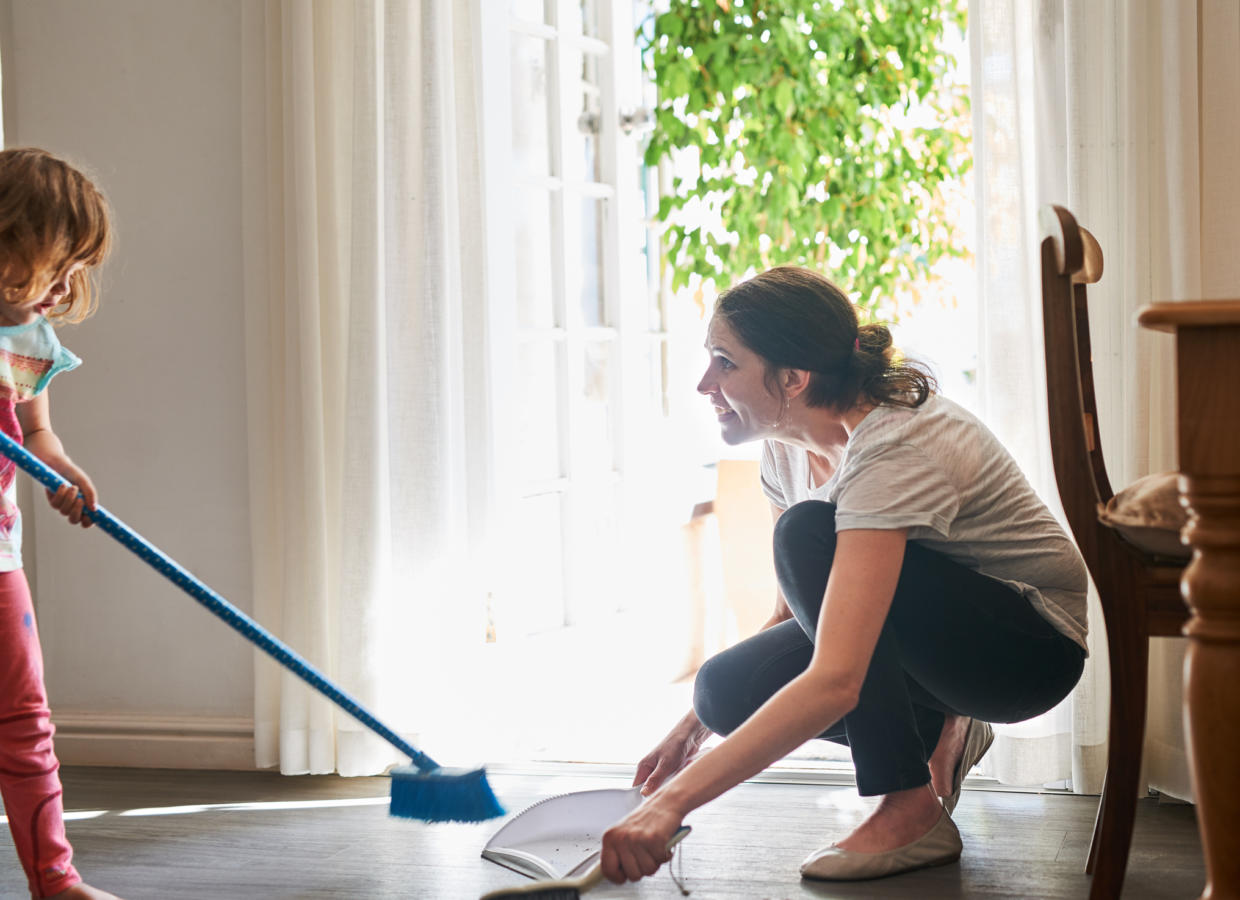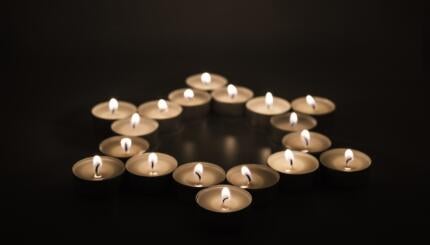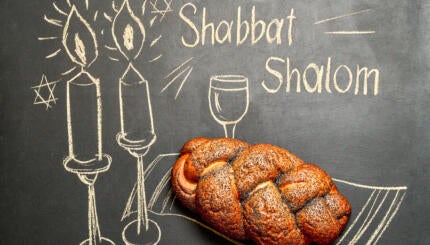One prepares for the Sabbath all week. In Hebrew the days of the week do not have names; they are all a launch pad for Shabbat. Sunday is the first day, Monday the second, and so on until Friday, which is both the sixth day and “the eve of Shabbat.”
In anticipation of the Friday night meal, observant Jews tend to eat lighter meals during the daytime on Friday. There is also much to do. In fact, the more observant you are of the details of Shabbat, the more you have to prepare before it arrives. The late eminent scholar Rabbi Joseph B. Soloveitchik used to say that the true mark of a pious Jew is not that he or she is a shomer Shabbat (a Sabbath observer) but is shomer erev Shabbat (one who properly prepares on the eve of the Sabbath).
By traditional Jewish law, one cannot shop on the Sabbath, so marketing is usually done during the day on Friday. Cooking is prohibited on the Sabbath, so that must be done in advance, too. Foods prepared beforehand can be kept warm on a hot plate or on the stove, a condition that has led to a preference for certain hearty dishes like a meat-bean-and-potato stew called cholent.
In our home, we try to give our children special Sabbath eve responsibilities. Of course, there’s cleaning up their own rooms, but we also divide up family responsibilities like sweeping, or setting up the Sabbath candles. My daughter, Emma, loves art projects, so she is always willing to write and decorate place cards if we are having company for Shabbat dinner. My son Adam vacuums.
— Ari Goldman, a former New York Times reporter, is the author of The Search for God at Harvard. Reprinted with permission from Being Jewish, published by Simon & Schuster.
With your help, My Jewish Learning can provide endless opportunities for learning, connection and discovery.
Friday: Spiritual Preparation as Well
Some Jewish men, Chasidim in particular, go to the mikvah (ritual bath) on Friday afternoon. It is a lovely custom, for mikvah not only symbolizes a spiritual cleansing, it also offers a few moments of private time to reflect, to relax, to disengage from the past week, to think about the coming experience of Shabbat. However, if their wives are home frenziedly preparing for Shabbat, caring for eight kids, it’s not altogether fair, nor is it in the spirit of the day. Similarly, in those families where a woman has the leisure to sit in a beauty parlor for three hours on a Friday afternoon, while her husband is frantically winding up a hard week, there might be a better distribution of responsibility so that a man will have the time to come a bit more restfully into Shabbat.
Before Shabbat begins, it is a custom to put some money into a pushke, a charity box. Nowadays, tzedakah (charity) being a bigger business, what with appeals, dinners, guests of honor, checks, and IRS deductions, this custom of slipping a few coins into a slotted tin box is of less impact. Yet, it is a sweet thing for children to observe, to do, and to learn from. And it’s one more act associated with the special preparations for Shabbat.
Some people also are able to set aside time to meditate, or study quietly before Shabbat. These are wonderful ways to prepare spiritually for the day. My husband often studies his daily quota of Talmud right before Shabbat. Somehow, I never have the time or discipline to distance myself this way until the very last minute. Perhaps this is my conditioning as a woman who, like most women, has been largely responsible for the physical preparations in the home, and who gleans the sense of sacredness and holiness from those endeavors; but for those who can get themselves spiritually as well as physically ready, there is a different foretaste altogether of Shabbat.
In as much as one should review the biblical portion of the week at least once before it is read in shul [synagogue] on Shabbat morning, this is an excellent subject for quiet study on a Friday afternoon.
Sign up for My Jewish Learning’s RECHARGE, a weekly email with a collection of Shabbat readings and more to enhance your day of rest experience.
erev
Pronounced: EH-ruv, Origin: Hebrew, evening, eve, usually used to denote the first night of a Jewish holiday, such as Erev Yom Kippur (Jewish days begin at sundown).
Shabbat
Pronounced: shuh-BAHT or shah-BAHT, Origin: Hebrew, the Sabbath, from sundown Friday to sundown Saturday.
Talmud
Pronounced: TALL-mud, Origin: Hebrew, the set of teachings and commentaries on the Torah that form the basis for Jewish law. Comprised of the Mishnah and the Gemara, it contains the opinions of thousands of rabbis from different periods in Jewish history.



